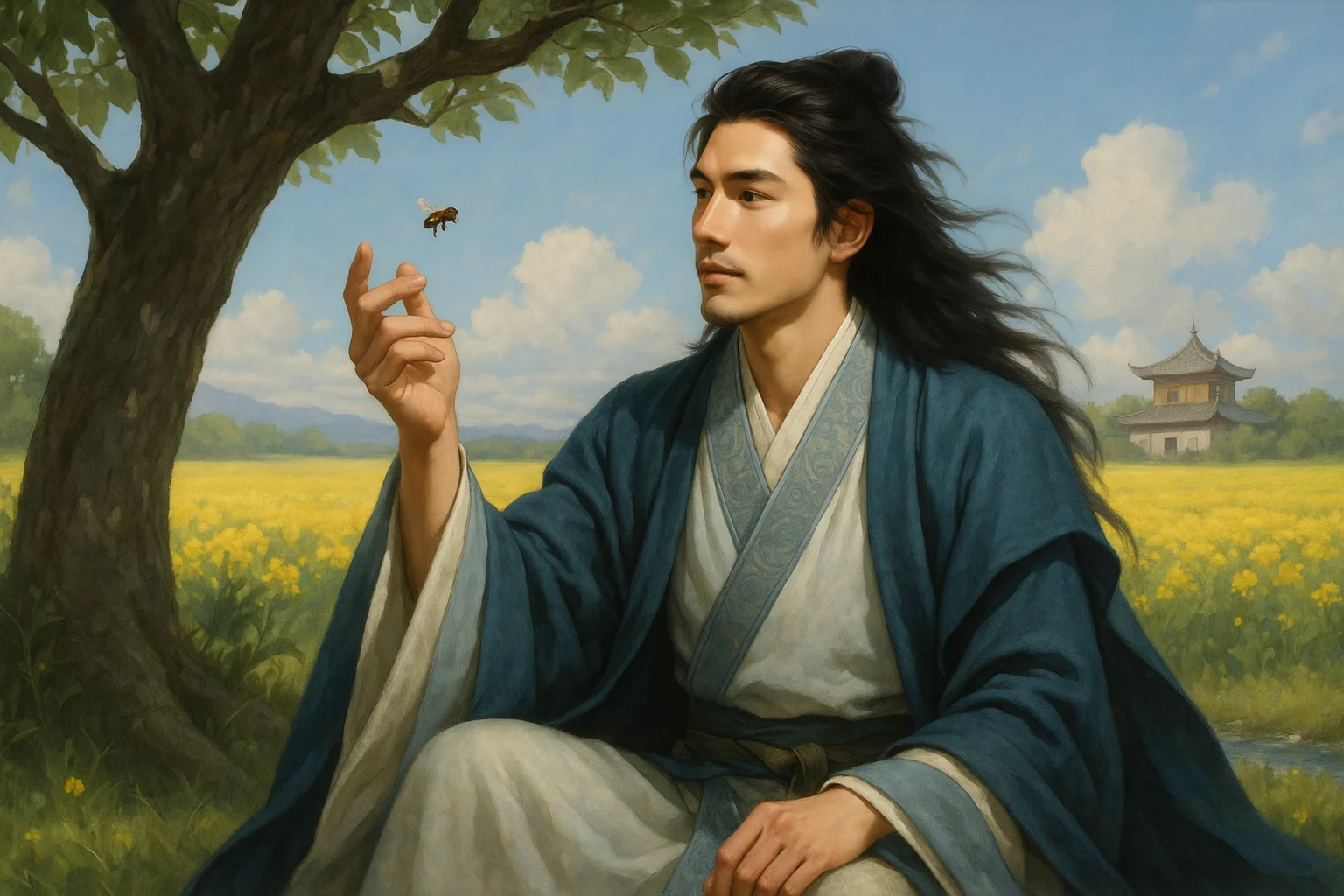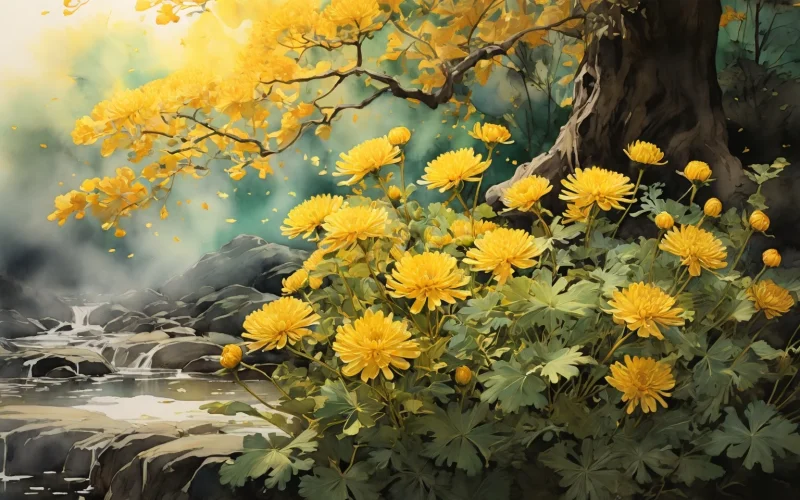You grow around a tree with a name bright,
You cling together steeped in autumn light.
If your flowers could be stored up like gold,
The rich would pluck you down since days of old.
Original Poem
「金钱花」
罗隐
占得佳名绕树芳,依依相伴向秋光。
若教此物堪收贮,应被豪门尽劚将。
Interpretation
This allegorical satire uses the "Coinlike Golden Flower" not as floral tribute but as biting socioeconomic commentary. The poet weaponizes the blossom's attractive name and appearance to expose aristocratic greed and heartlessness, channeling his signature indignation through botanical metaphor.
First Couplet: "占得佳名绕树芳,依依相伴向秋光。"
Zhàn dé jiā míng rào shù fāng, yīyī xiāng bàn xiàng qiū guāng.
Claiming its lovely name, it twines fragrant round trees; tenderly companioning, basking in autumn glow.
These deceptively affectionate lines paint an idyllic scene - the flower's aromatic vines embracing trees in golden light. "Lovely name" and "tenderly companioning" create deliberate allure, setting up the impending critique with masterful irony.
Second Couplet: "若教此物堪收贮,应被豪门尽劚将。"
Ruò jiāo cǐ wù kān shōu zhù, yīng bèi háomén jìn zhú jiāng.
If these blooms could be hoarded like coin, nobles would hack them all away without mercy.
The tone pivots violently with this hypothetical. "Hack" (劚) delivers visceral force, exposing how beauty and value inevitably attract exploitative destruction when profit beckons. The couplet crystallizes eternal truth about power's extractive nature across dynasties.
Holistic Appreciation
"Coinlike Golden Flower" operates on twin levels: surface-level floral appreciation undercut by savage class critique. The initial picturesque description - warm, communal, radiant - makes the subsequent revelation of aristocratic predation more devastating. In just four lines, the poem constructs then demolishes innocence, its structural perfection mirroring how systemic greed corrupts natural beauty. The flower becomes every vulnerable thing crushed beneath wealth's insatiable machinery.
Artistic Merits
- Metaphorical precision: Floral characteristics perfectly mirror monetary values
- Tonal whiplash: Pastoral opening vs. violent conclusion heightens impact
- Lexical surgical strike: The single character "hack" (劚) bleeds socioeconomic violence
- Universal resonance: Translatable to any era of wealth inequality
Insights
This poem anatomizes how power converts beauty into commodity. Beyond Tang dynasty nobles, it speaks to modern resource extraction, cultural appropriation, and late-stage capitalism's endless consumption. The poet's warning echoes through millennia: when society equates value with possessibility, even nature's loveliest gifts become expendable. Yet by immortalizing this truth in art, he proves some flowers - and ideas - cannot be fully uprooted.
Poem translator
Xu Yuanchong (许渊冲)
About the poet

Luo Yin (罗隐), 833-909 AD, was a poet of the Tang Dynasty, a native of Hangzhou. His poems have the spirit of entering the world by facing the reality and life directly, bravely fighting against the darkness of the society with his poetic pen, attacking the bad government of the society, reflecting the hardship of the people in the society and expressing his personal hardships.











